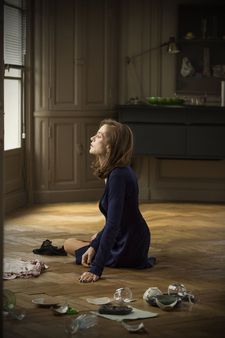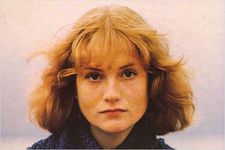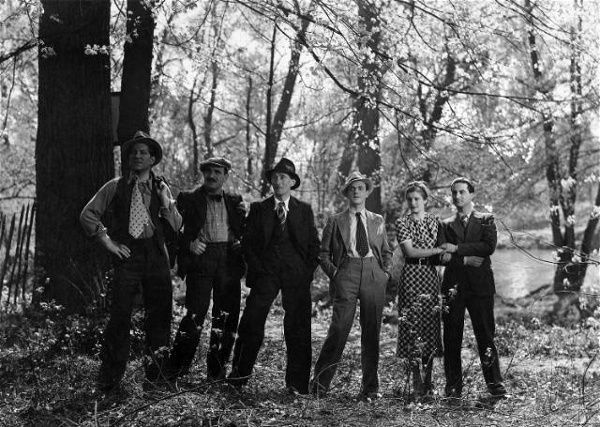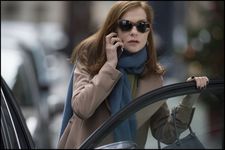Elle star Isabelle Huppert reigns as the art house queen - doyenne of glacial heroines who nurse dark deeds in the deepest recesses of their hearts and minds. She also relishes the chance to do comedy and if there was a suitable action part lurking somewhere she might well be interested. She’s won awards by the mile - none more so that in the last few months when her profile has never been higher.
When we meet in Paris at the Unifrance Rendez-vous in January she has just returned from the Golden Globes, where she scored best actress for Paul Verhoeven’s film, described intriguingly as a rape-revenge comedy.
The London Critics’ Circle also gave her a best actress (for Elle and Mia Hansen-Løve’s Things To Come, two of five titles from the last year). She has been nominated for an Academy Award for Elle while all eyes will be on the French Oscars this Friday (February 24) to see if she maintains her winning streak.
 |
| Isabelle Huppert: 'It says a lot about violence, how you can sometimes be attracted to violence and how it is also connected to sexuality' Photo: Unifrance |
Dressed in skinny grey jeans with her legs tucked up in what looks like a complicated yoga position she could almost disappear in to the cushions surrounding her. She seems completely unfazed by all the attention, laughs a lot (often at her own expense), and obviously loves to talk. Michael Haneke who directed her in The Piano Teacher and Amour, believes she is “the best actress I know in Europe, if not the entire world". Her mentor, the late Claude Chabrol, once told me she was like “a trapeze artist - teetering on the brink but always managing to stay upright".
When she played Mary Stuart in Schiller’s play at the National Theatre in London she told me she had an affinity for certain aspects of the British way of life. Her mother taught English so she always had this English sensibility, and as a child came a lot to England, Scotland and Ireland. The original plan was to make Elle in English. Huppert’s character Michelle, who is violently raped at the start of the film, goes on to develop an almost intimate relationship with her attacker. On reflection, Verhoeven had second thoughts as he realised that no actor in Hollywood would touch the script. Isabelle Huppert had no such qualms.
Richard Mowe: What was your first reaction to the prospect of making a film of the book?
Isabelle Huppert Immediately, I read the book [by Philippe Djian] I found it very cinematographic. She was a great character and there was the potential for the film to create a very elaborate and complex story around this individual. It was saying a lot about one person in particular but a lot more about our society and lot of different subjects. It says a lot about violence, how you can sometimes be attracted to violence and how it is also connected to sexuality. Nothing is defined or underlined and Verhoeven has left lots of gaps in the film. It is up to the viewer to fill in those gaps and give their own interpretation. Most people seem to get the idea and, to me, the woman appears more like a survivor than a victim.
RM: Was Paul Verhoeven a director who had figured on your radar?
IH: I think the first time I had become conscious of his work was when I saw Turkish Delight [the director’s first film in 1973] but that was a long time ago. I saw it by complete accident and I had no idea who he was. In fact, nobody knew who he was, especially in France at that time. I was riveted by the film. I liked the way he had combined several different genres in that film and it is the same with Elle. It goes from the thriller to the portrait of a woman, to comedy. It is a roller coaster and he has the ability to go down this winding road - he never locks you in as an actress or indeed as a person. It was an extraordinary experience working with him.
IH: I think it is exactly the same reasons as I have always had - to collaborate with great people which I have had the opportunity to do from the very beginning. What makes Elle different is that she seems on the surface to be a very strong woman and she is also a woman who has power. She is fearless and solitary and she has a certain idea of herself which makes her different from other characters I have been doing.
RM: Are you curious to see your performance played back on the monitor when you are shooting?
IH: That’s a good question - but I don’t have a habit of doing it or not. Some directors would be reluctant to have actors watch the monitor. And others don’t mind. Perhaps unexpectedly, Michael Haneke likes it if actors want to have a look. Most of the time I don’t want to but with someone like him, it was fine. I remember that on Amour he wanted me to watch all the time because it was easier for him to explain what we did technically if he could show me on the monitor.
RM: What is going through your head when you are making a film like Elle?
IH: It is very difficult to explain but basically nothing and everything. For 12 weeks, I was there for every scene and all the time - from early in the day to late at night. You don’t have time to think. And we never really had any discussion about the character - except I don’t like the term characters and I rarely use the word to describe the people I portray. I have a reluctance to call them characters - I prefer to say "elle" or "she". In some ways you are better not to know too much or it would break the spell. With Verhoeven I had someone who has happy just to get on with it rather than to analyse so we were in complete tune. I do not have precise ideas about what I do and that is partly why I do it. I am very confident about myself - and that allows me to be myself. I do not know where it comes from and I do not have it about other things but for my work I have it. When I am on set and about to act or "non-act" or whatever you call it I have that confidence about myself. It is that little gift that life gave me, and I keep it for myself.
RM: How did you find working with the feline star?
IH: It was really easy because he was a trained cat. I had two cats to work with last year. I had the cat in Things To Come (a big cat that felt like an elephant when I had to carry her, which was a metaphor for my character’s burdensome relationship with her mother) and on Elle it was different. The cat was right there in the opening scene and might even have been a symbol of Verhoeven watching the scene. He was so well trained and he did 12 takes perfectly.
RM: Is there a character who is particularly close to you?
 |
| Isabelle Huppert as she appeared at the time of Claude Goretta’s The Lacemaker (1977) which shot her to prominence Photo: Unifrance |
RM: Do you take home with you these people you find yourself playing?
IH: Yes and no - some of them I do not have enough room to take them home and still be myself.
RM: What makes you upset ?
IH: Not many things … my opinions don’t matter so much. I don’t get involved in politics or campaigns and even if I did I wouldn’t tell you. I agree with everything that Meryl Streep said about Trump and the state of America at the Golden Globes but I am not sure I would do such a thing here in France. Things are not that extreme, at least not yet.
RM: Have you ever been tempted to direct?
IH: No, not really because I am fulfilled as an actress and in most of the work I do I am involved in shaping the role with the director. As a director though you would need so much endurance whereas as an actress you can go quickly from one film to another. I like that. Being an actress suits me perfectly - I can be lazy if I want and work if I want. Theatre requires a bit more effort but making movies is relatively easy except those early morning starts.
RM: What is your relationship with awards - are they important for you?
IH: Yes, of course, they all mean something. I am always amazed at the strength of the reaction to these accolades. As movies are such a collective undertaking I share them with all the people I have worked with. You do not do movies all by yourself - it can be very solitary but it is also very collective.
RM: Do you have a special place for all your awards?
IH: I have to think about that but for the moment at least the Golden Globe is still in my suitcase.
Elle is released in the UK and Ireland on March 10.























